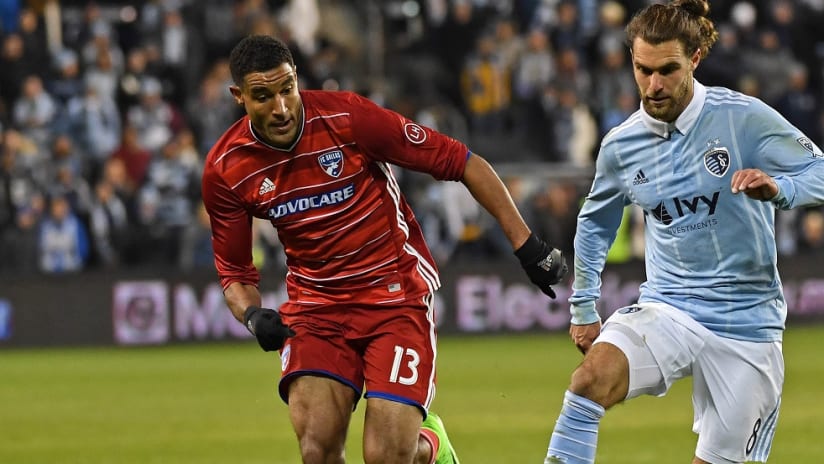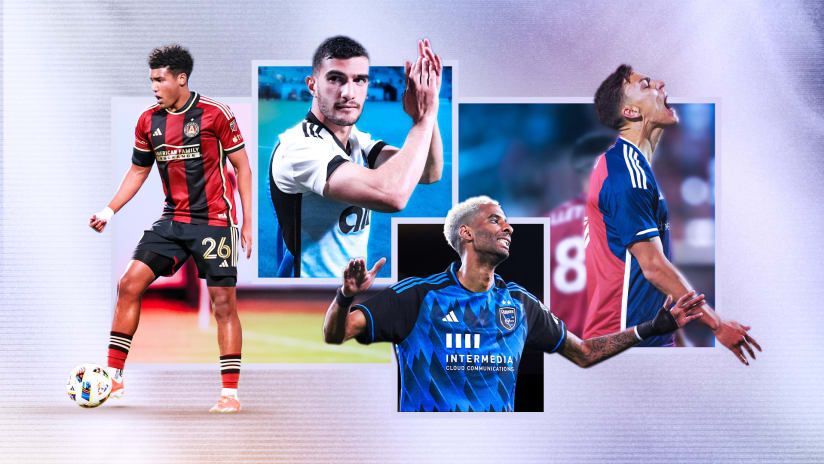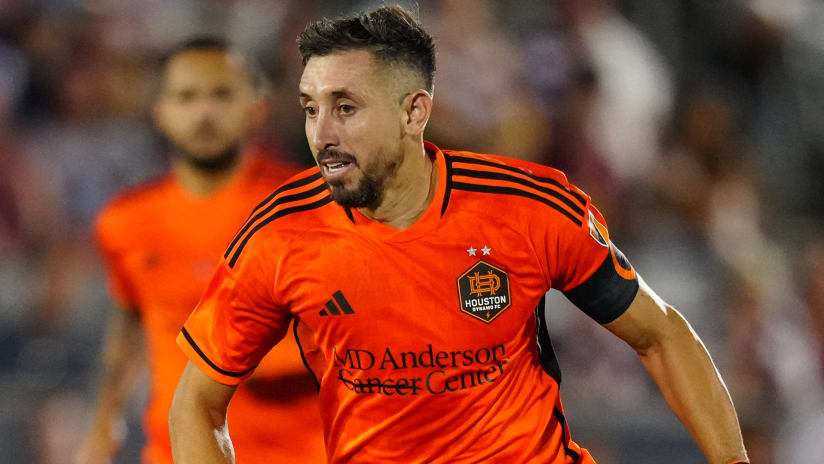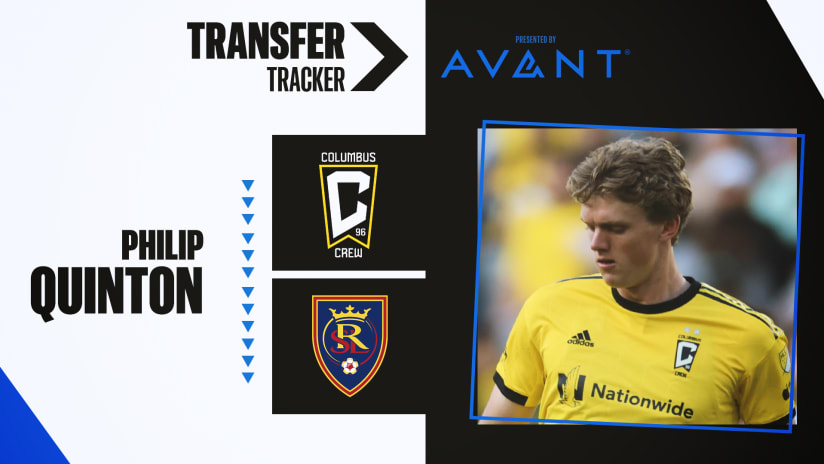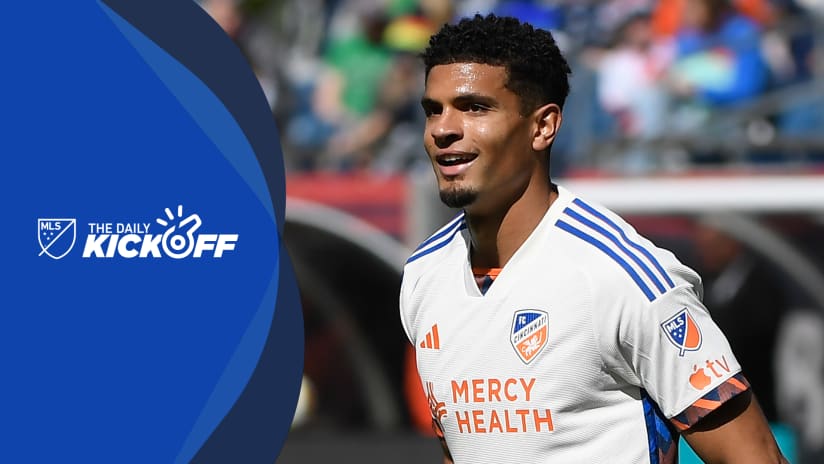FC Dallas hosts Sporting Kansas City this Saturday (8 pm ET; MLS LIVE) in a battle of the only two remaining unbeaten teams in MLS. The two teams have conceded the fewest goals in the league and are two of the three teams currently averaging 2 points per game or better. The third -- Orlando City SC -- has only played one road game, while both Sporting and FC Dallas have played three away matches.
In short, they've been the two most impressive teams through the first month-and-a-half of the MLS season.
Their early run toward the top of the table shouldn’t be a big surprise, given that they're two of the five teams to have won at least 60 regular season games since the start of the 2013. What is fascinating, is that this year they've been succeeding while using completely different -- perhaps even opposite -- styles.
Most successful passes per game
Team |
Successful passes/game |
|---|---|
New York City FC |
459.50 |
Columbus Crew SC |
420.29 |
Seattle Sounders |
400.50 |
Atlanta United FC |
392.33 |
<strong>Sporting Kansas City</strong> |
<strong>390.67</strong> |
Least successful passes per game
Team |
Successful passes/game |
|---|---|
Vancouver Whitecaps FC |
245.50 |
<strong>FC Dallas</strong> |
<strong>252.80</strong> |
D.C. United |
253.33 |
Orlando City SC |
254.00 |
Houston Dynamo |
273.83 |
*Stats provided by Opta
As the tables show, FC Dallas ranks second bottom in the league in number of successful passes per game, while Sporting are in the top five, averaging almost 140 more completed passes per game than Dallas this year. The passing stats indicate that Sporting like to have the ball, and Dallas are more comfortable sitting back and countering quickly. The fact that both teams have been able to succeed with such contrasting ideas on how to play is illustrative of the fact that there is no singular "best" way to win at the professional level, but there is almost always a "best" way to play given the specific makeup of a teams roster.
Indeed, FC Dallas averaged 50 more completed passes per game last year, when they had Mauro Diaz available. While head coach Oscar Pareja waits for his star playmaker to return to health, he has changed his style to capitalize on what his current players do best.
Peter Vermes has been the custodian of the Sporting Kansas City team and style for quite some time now, so he has a roster customized to his vision of how the game should be played. So far this year, 10 players have started all six games for him, with only Benny Feilhaber missing out on two games due to injury.
The two teams actually played against each other earlier this year, battling to a 0-0 draw in Week 2. We can take a look at that match to help us get a better understanding of how this weekend’s game might play out.
FC Dallas was in the midst of their CONCACAF Champions League run, and so they rested a few key players with their first leg against Pachuca only a few days after. Regardless of who Dallas used, the patterns of the game are likely to be very similar.
The crux of the difference in style between the two teams is in how they approach defending, and what space they choose to concede. Eleven players cannot effectively cover the entirety of a soccer field, so teams have to leave space somewhere. Sporting like to play in the opposition half, suffocating their play early while risking leaving space behind their defensive line. With Ike Opara looking like the best transition defender in the league early this season, it is a choice that has paid off.
FC Dallas would rather drop deep, and rarely defend in the opposition half. They are comfortable defending on the edge of their own box, with Matt Hedges and Walker Zimmerman extremely successful at repelling opposition attacks and launching quick counters that catch their opponents too high up the field. When these two styles play against each other, the pattern of the game can look something like this as long as it stays scoreless, or if Dallas grab an early goal.
pic.twitter.com/1dsghoXWSa — MLSclips (@MLSgamefilm) April 21, 2017
In the clip above, Sporting has almost all of their players in the Dallas half, while Dallas has a compact back four, with a midfield line of five just in front of them. Sporting move the ball, trying to shift Dallas out of shape and create openings, trying to stay composed while playing with the urgency required to break down FCD. When Dallas regain possession, they are quick to play vertically.
The game is likely to be played mostly in the middle third, and mostly with Sporting keeping the ball. According to Opta, the first match was played 52.9 percent in the middle third with Sporting KC holding onto the ball for 68.5 percent of the time.
A 0-0 draw with over half the game being played in the middle third might not sound like the most thrilling match on paper, but there is an incredible amount of tension that occurs when these two styles play against each other. One slip up by the Sporting defense and Dallas is away and in space.
pic.twitter.com/HEkdwfmEnt — MLSclips (@MLSgamefilm) April 21, 2017
It's important to note that Dallas ended up creating that chance because Sporting chose to hunt the ball and leave space behind. An entire article could be written about the breakdowns that occurred on this sequence from a Sporting KC perspective, but in terms of teaching us about what to watch for this weekend, note that FC Dallas attempts to slip its wide players into the space vacated by the Sporting fullbacks. Roland Lamah and Graham Zusi had a physical introduction to each other in the last 30 minutes of the first encounter between the teams, and with Zusi constantly looking to overlap, their matchup in particular will be fascinating this weekend.
If it seems risky for Sporting to push everyone so high and leave space for Dallas, what can we make of the Dallas defense waiting for the oncoming SKC attacks?
pic.twitter.com/QVZ5hLminW — MLSclips (@MLSgamefilm) April 21, 2017
In the clip above, FC Dallas have numbers behind the ball and comfortably repel the first cross. However, Sporting have committed players forward and quickly begin to pressure Dallas again. The FCD defensive line can’t even get out of their own 18 before they need to reorganize, and one slip in concentration allows Dom Dwyer to slip behind. FC Dallas will not be happy if they concede more chances like that to Dwyer this weekend.
In the first game, Matt Besler and Ilie Sanchez both attempted 102 passes, the most a player has attempted in a single game against 11 men in MLS this season. It will be interesting to see how they do against Maxi Urruti, one of the best defending forwards in the league. Carlos Gruezo and Kellyn Acosta are two of the best midfielders in MLS, but they will be outnumbered against Sanchez, Feilhaber and Roger Espinoza. We will likely see Urruti dropping off to help in the defensive phase, which will be a different (and all due respect, tougher) challenge for Sanchez than going against rookie Jacori Hayes, like he did for the first half of the first game.
While the first game was played at Children's Mercy Park and this weekend will be in Frisco, both teams hold pretty true to their styles regardless of whether they're at home or on the road. FC Dallas had only 45 percent of the ball in their home win against Minnesota United FC two weekends ago while Sporting KC kept the ball for 56 percent of the first half against the Portland Timbers, before a Dwyer goal to start the second half set them on their way to a 1-0 win last weekend.
As long as Dallas do not fall behind early, we know the styles the teams will play, and what the pattern of the game will look like. It is up to the players on each team to step up and prove why their coaches have chosen to play the way they have.
Matt Pavlich is a youth soccer coach in the New York City area who holds a NSCAA Advanced National badge. He is the Assistant Coaching Director, Recruitment Coordinator and Girls 2002 head coach at Asphalt Green Soccer Club, and boys assistant coach at Martin Luther King high school. He has worked for Opta since 2011, primarily focused on MLS. He also played varsity soccer at Vassar College, where he could fairly be described as mediocre.

